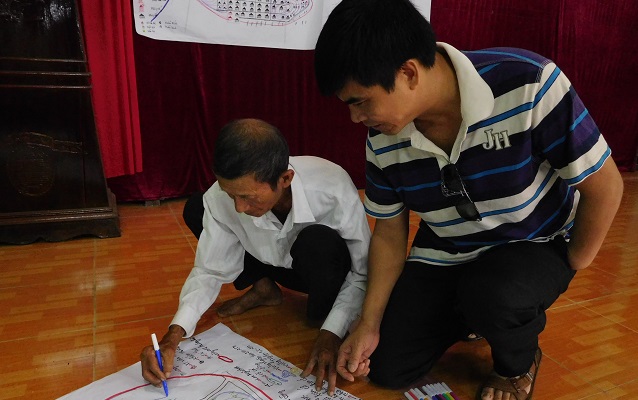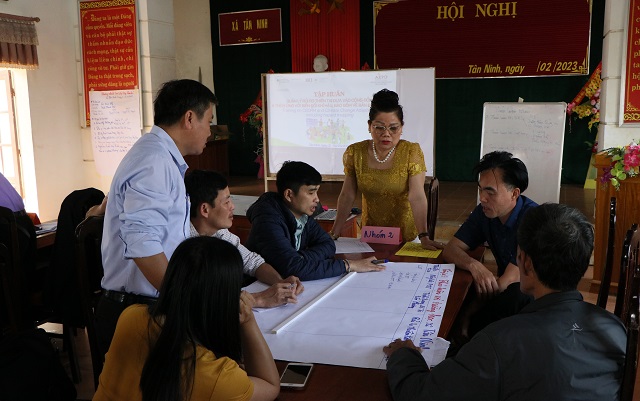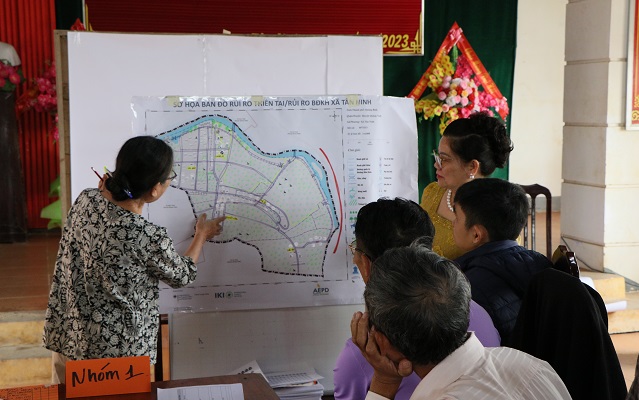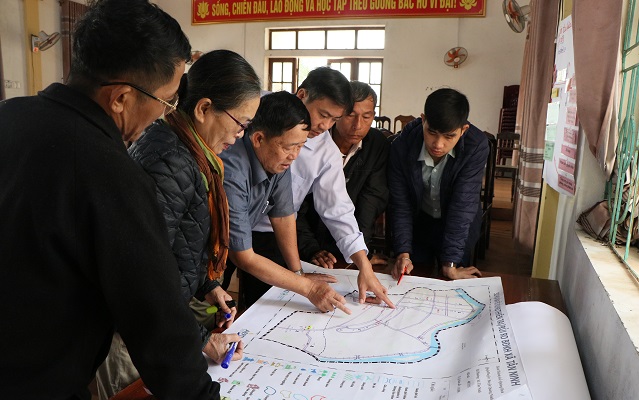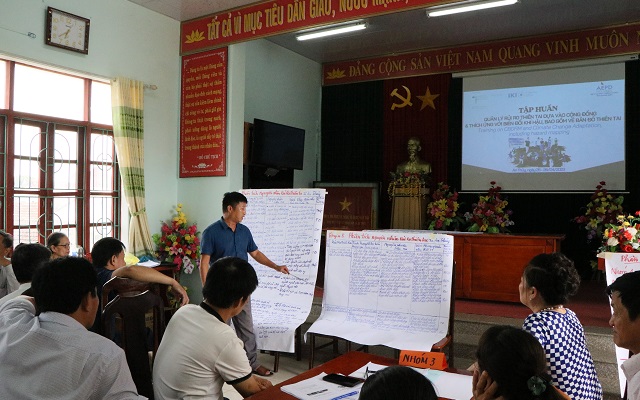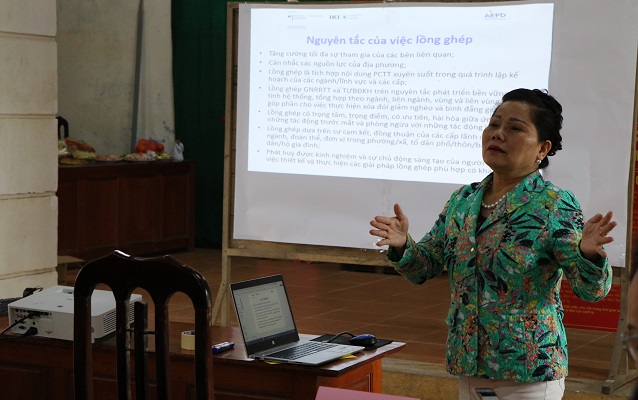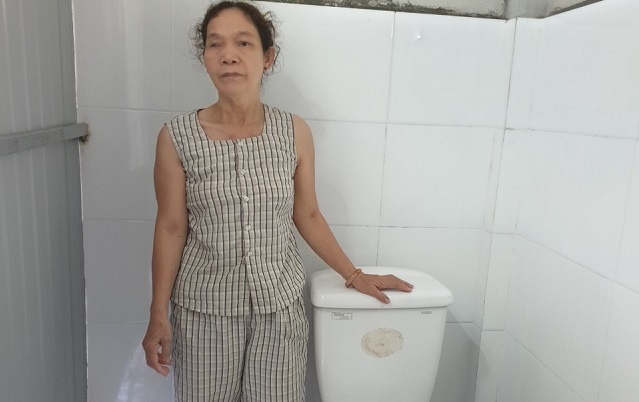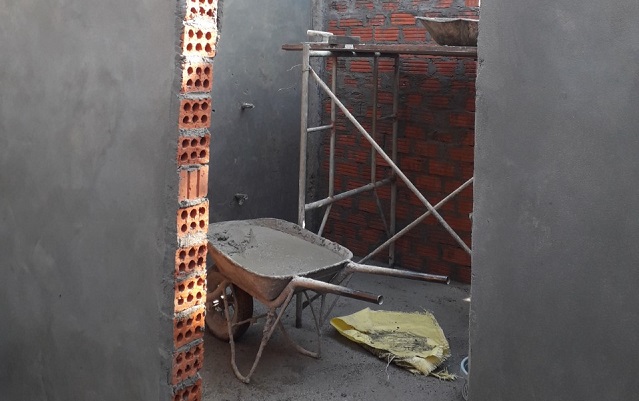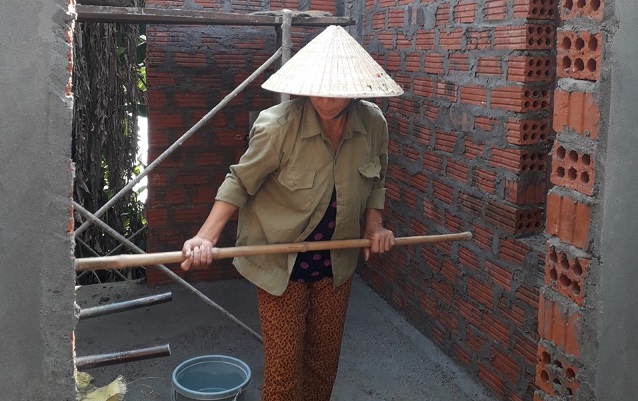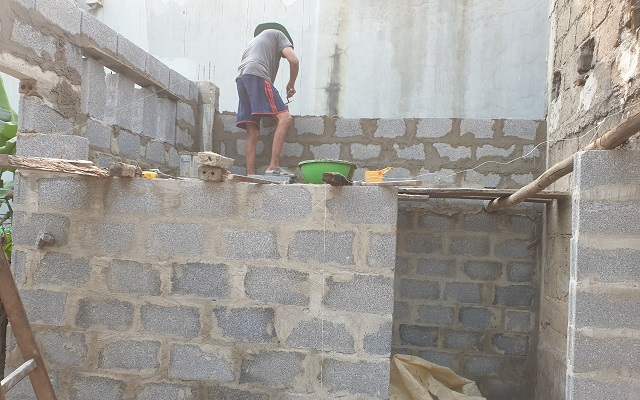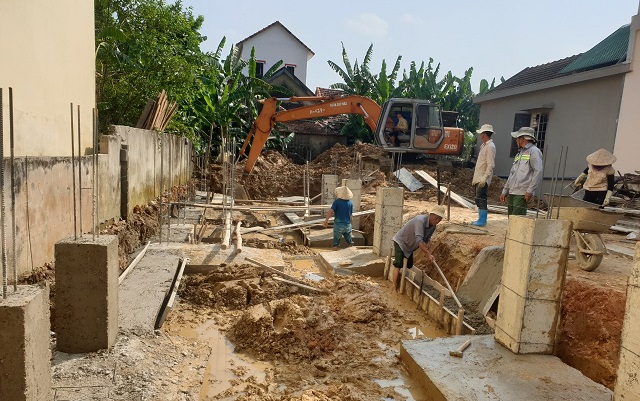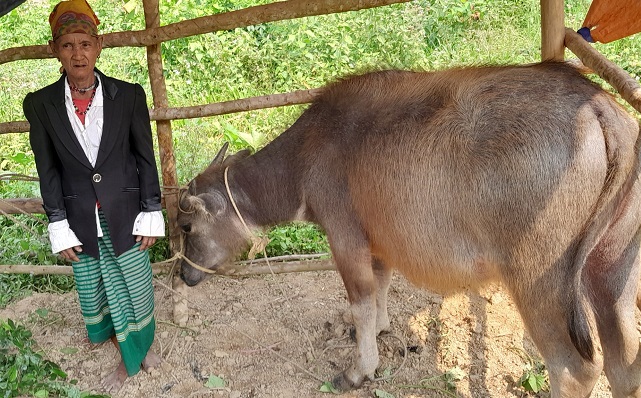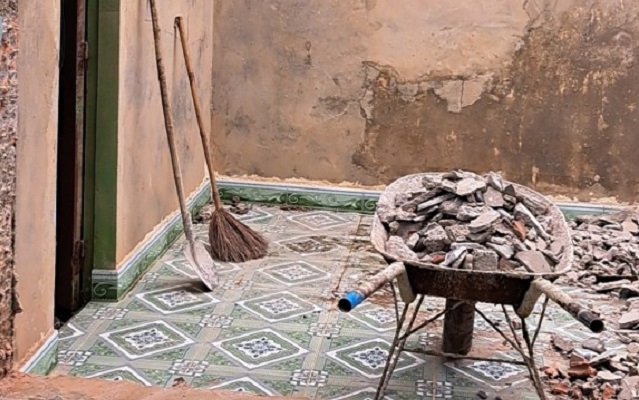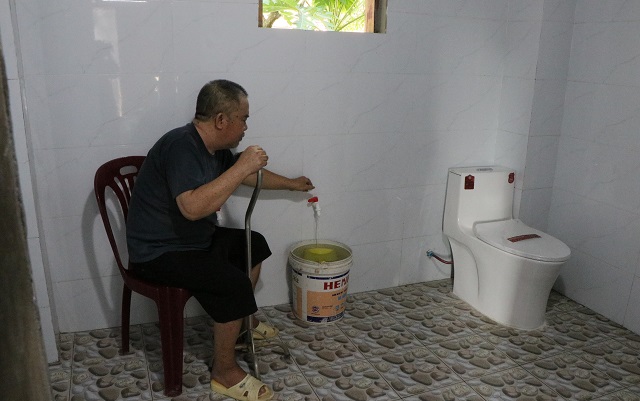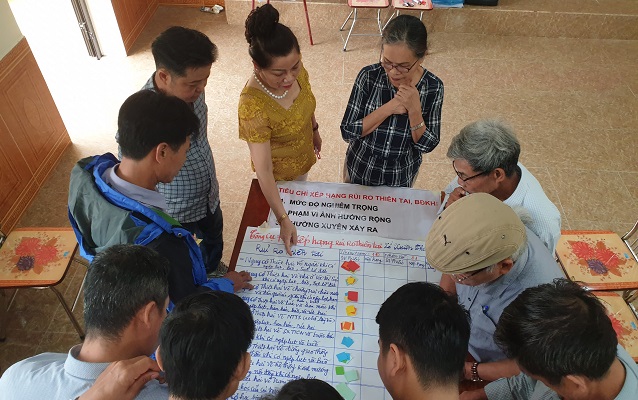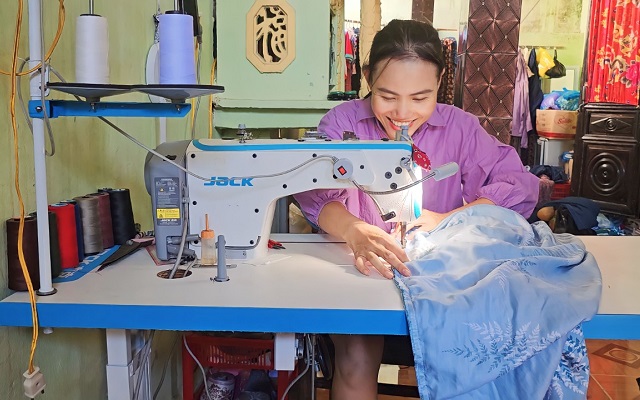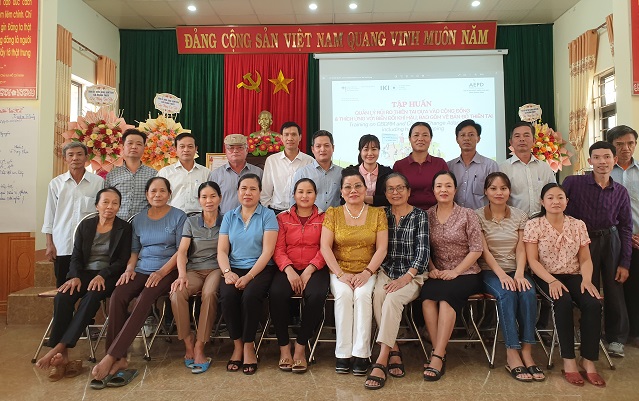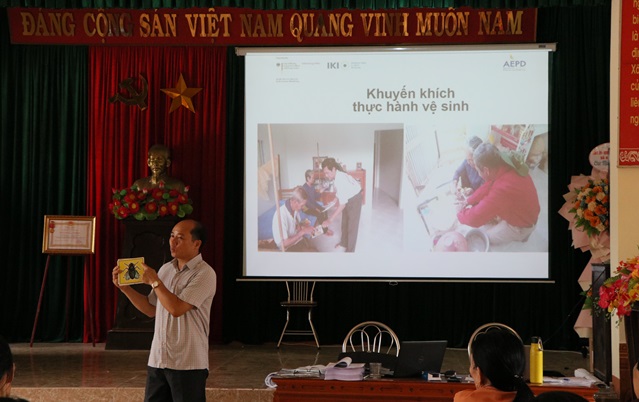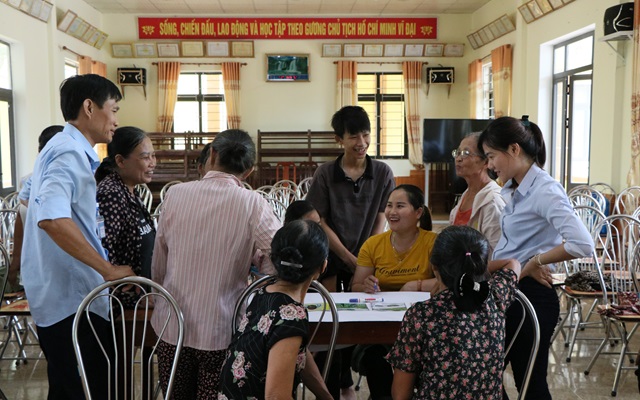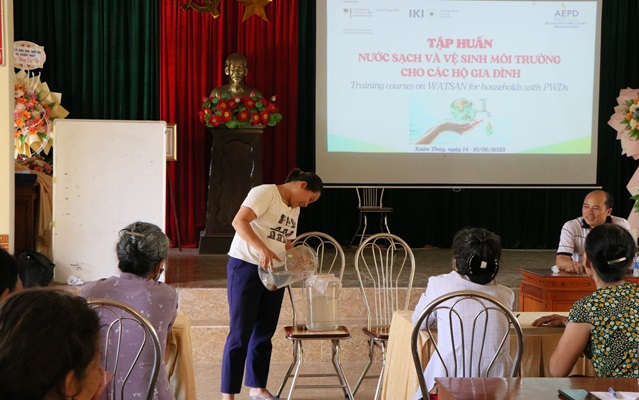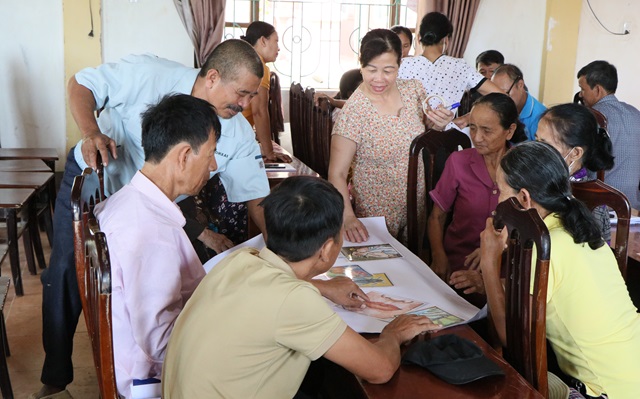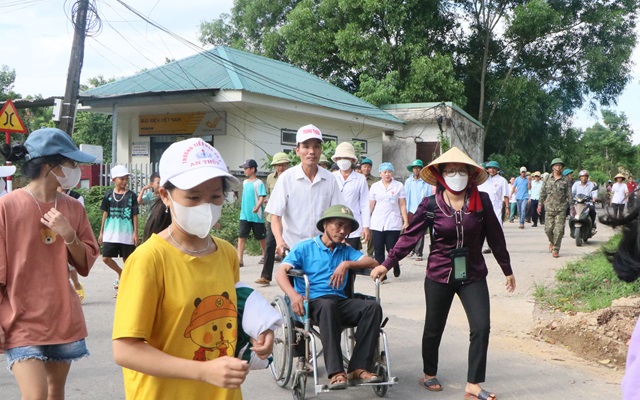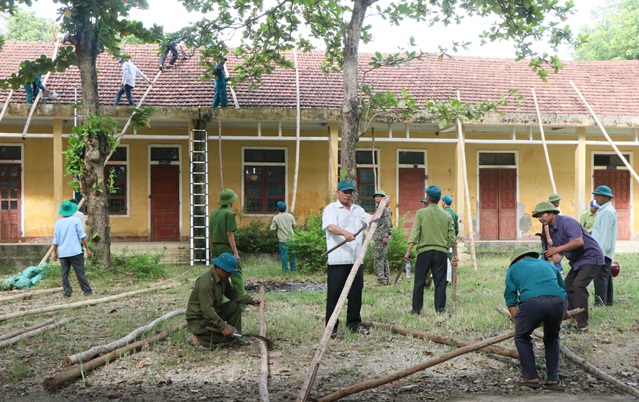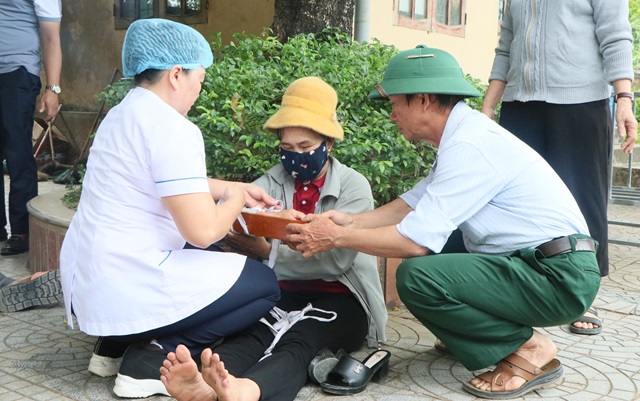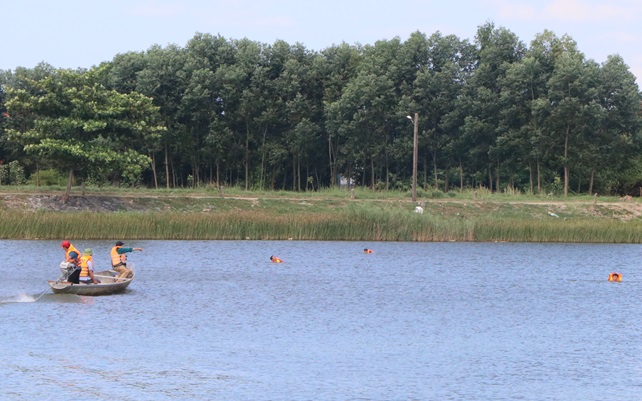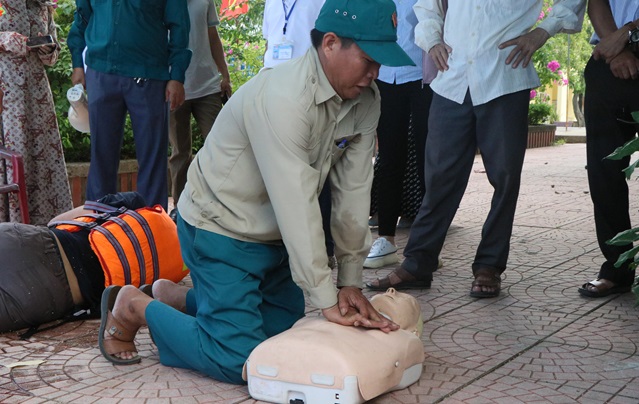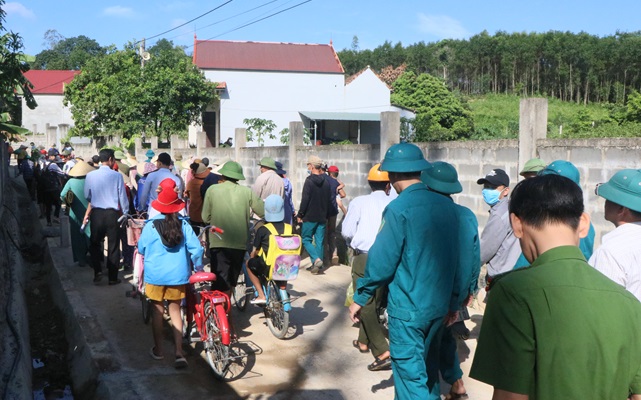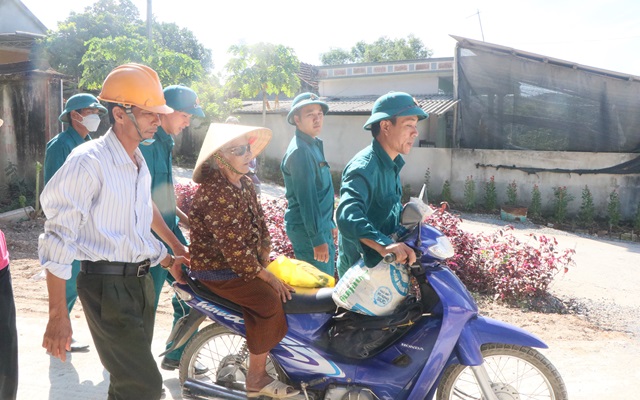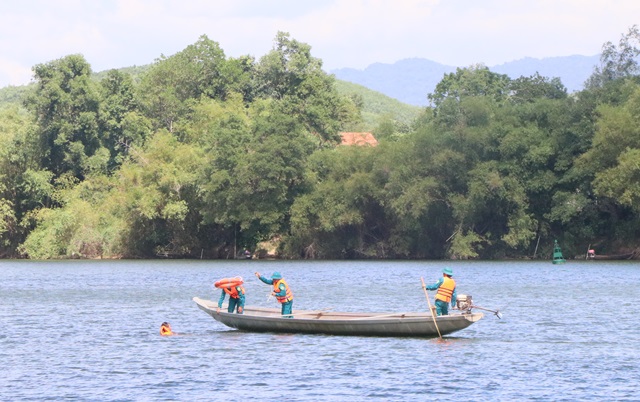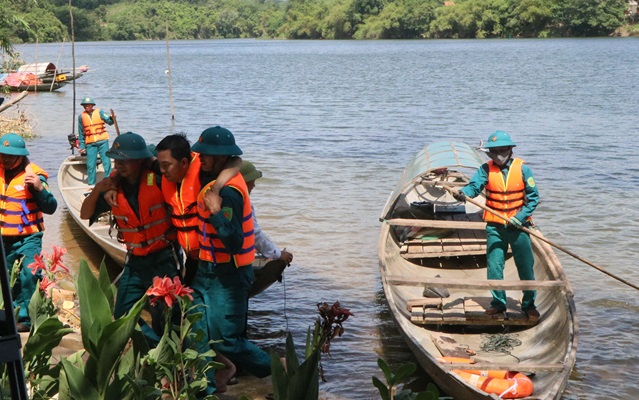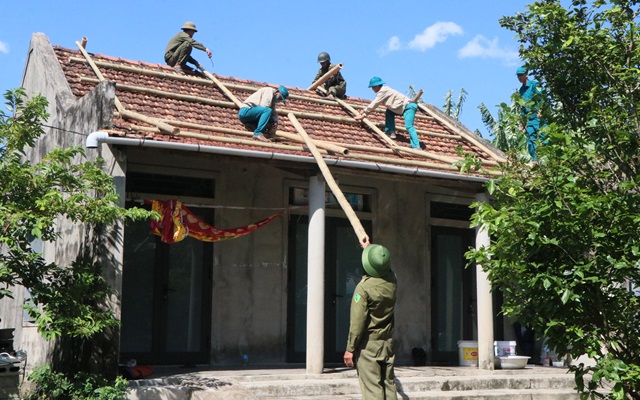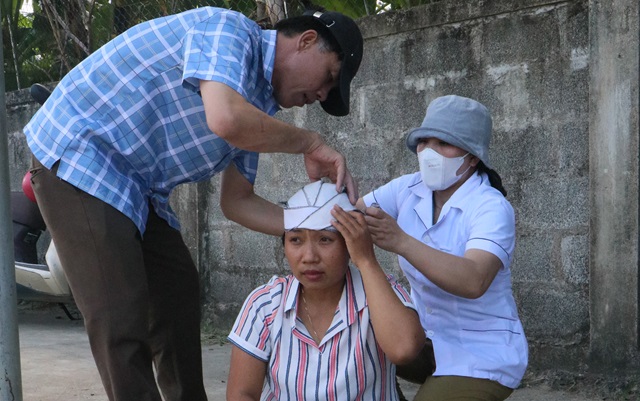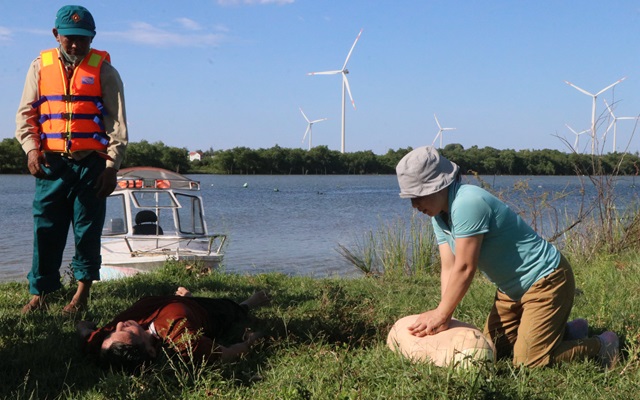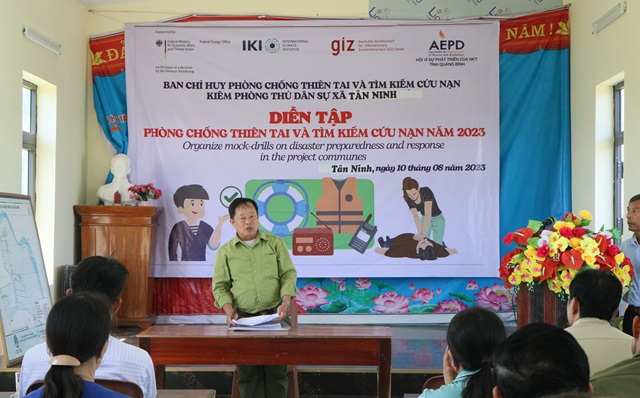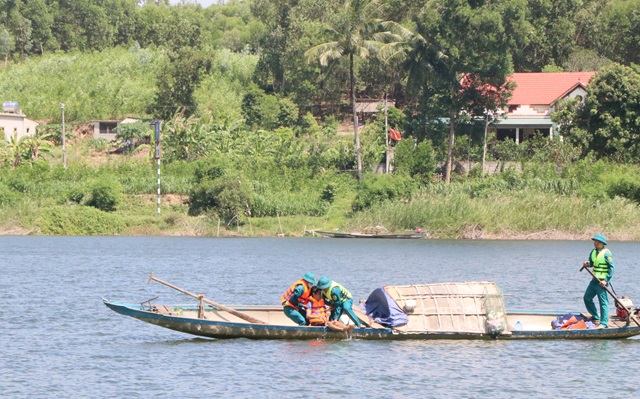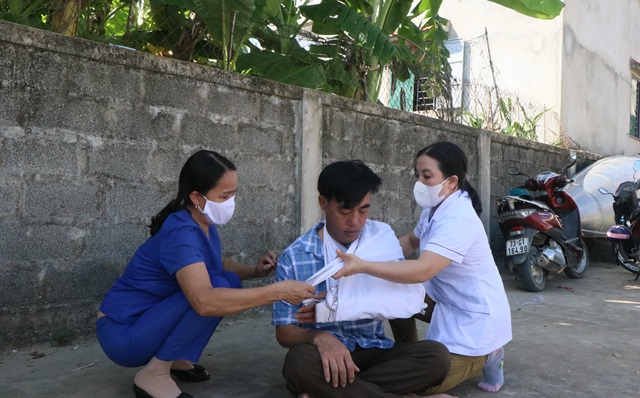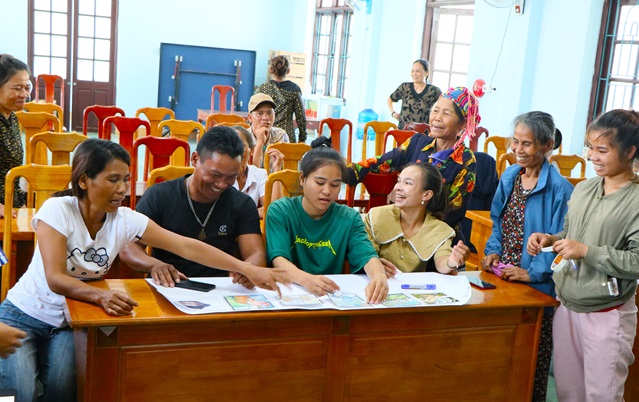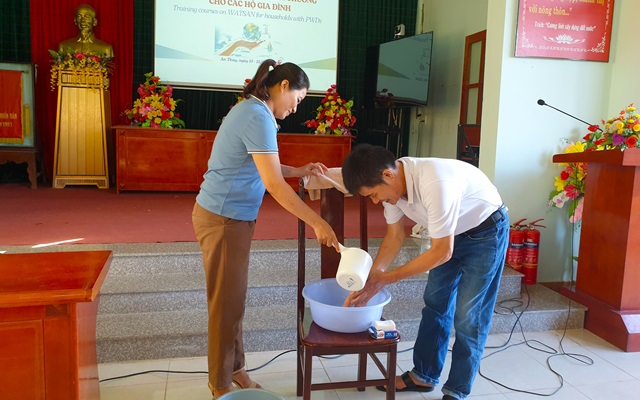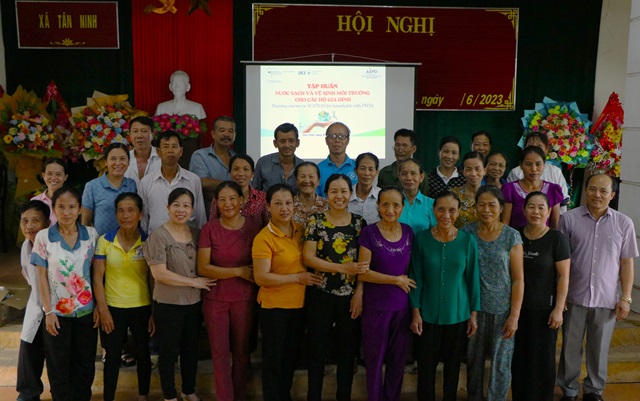Enhancing resilience of vulnerable communities to counter climate change impacts
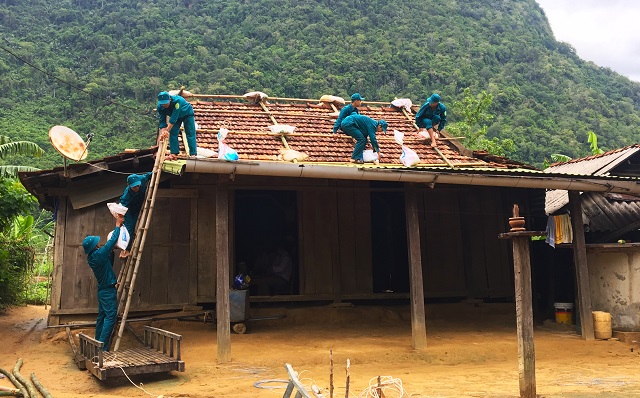
Located in the tropical monsoon region, Quang Binh province suffers from five to six storms and floods per year, destroying or washing away many houses and causing losses of production and human lives. Vulnerable groups, notably persons with disabilities, face double or triple challenges during disasters due to their limited physical abilities and economic conditions. To help vulnerable groups reduce risks of damages and losses caused by disasters and climate change, the IKI Small Grants project empowers local actors, including municipal disaster risk management committees and communities to better deal with extreme weathers while mitigating impacts of climate change through capacity building training courses and events, small-scale disaster resilience structures and economic improvements for households. It is expected to develop good practices of building resilience of vulnerable groups to climate change impacts for further replication in other regions in Viet Nam.
INITIAL SITUATION
Quang Binh has an area of 8,000 square kilometers and a population of nearly 1 million people. Its topography is mainly hilly and barren. The climate is divided distinctly into rainy (September to March) and dry (April to August) seasons, when highest temperatures can reach 42 degrees Celsius. Climate change obviously does not exclude Quang Binh, where extreme weathers such as floods, storms, landslides and others are increasingly frequent. Also, appearance cycles get shorter, while the leel of intensity increases.
Approximately 75 per cent of the province’s population, especially vulnerable groups (people with disabilities, PWDs) live in rural areas and depend on agriculture as their main source of income. Such climate changes have affected their socio-economic life, caused crop and livestock productivity decline or failure, transformed agriculture structure and many more. Droughts, floods, storms or landslides severely threaten people’s lives and change the environmental landscape, affecting people’s health. With every new disaster, economic exhaustion further weakens the resilience of people, notably PWDs.
TARGET GROUP
When natural disasters occur, the most vulnerable and affected groups are disadvantaged groups, notably PWDs. Quang Binh has more than 45,000 PWDs (according to DOLISA 2020), of which the majority (85 per cent) live in rural areas, where socio-economic conditions and infrastructure are poor. The project will target PWDs and their families who rely on agriculture, living in the four most disaster-prone communes of Quang Binh province. It is expected to have approxiately 1,000 people directly benefitting from the project and more than 5,000 people benefitting from the project through interventions such as improved early warning systems. The direct beneficiaries will be invited to capacity building training courses, supported to construct or repair disaster-resilient schemes, to pilot household scale irrigation drip or drop systems. Local authorities are also empowered to better deal with disasters and provide better support on disaster risk reduction for their people.
VIDEOS FROM THE PROJECT
APPROACH AND ACTIVITIES
The project aims at increasing the capacity of vulnerable households to cope with extreme weather events through equipping them with sufficient knowledge, skills, support and necessary facilities and houses in order to relieve the impacts of climate change.
To achieve this goal, the project promotes the Community-Based Disaster Risk Management (CBDRM) model to seek ways to help communities effectively use local resources and capacities to better prepare for disasters, and to adopt measures to reduce their vulnerability.
The Association for Empowerment of Persons with Disabilities (AEPD) is working with local authorities and vulnerable communities in disaster-prone municipalities to enable them to better prepare for and respond to natural disasters, and withstand and recover from external and internal shocks through a combination of practical and knowledge-based activities to help communities identify and tackle critical vulnerabilities as they draw from years of collective experience.
The focus of the project is twofold. Firstly, strengthening the local Steering Committee for Natural Disaster Prevention and Control, including the rapid response teams by organising technical training courses on CBDRM, upgrading early warning systems and mock-drills. Secondly, empowering vulnerable people, notably persons with disabilities, by equipping them with knowledge and skills for before, during and after a natural disaster. A competition on CBDRM knowledge and skills is a good way to help local people to boost their knowledge and better apply their skills. Physical measures for vulnerable households are considered essential parts of this project, specifically supporting livelihood development, application of household smart irrigation systems, supporting the construction of disaster-resilient houses and accessible toilet and water systems.
AEPD believes that when local authorities put effective systems and structures in place, supported by skilled staff, they can support local people more effectively. This will ensure timely and coordinated actions at the communities during a major disaster. At the same time, when vulnerable households, notably households with PWDs, improve their family economics (livelihood support), upgrade their living conditions (houses, toilets, and water systems), and reduce production losses (small-scale irrigation systems), they will have less risks of losses and damages. In addition, knowledge and skills obtained from project activities will enable them to proactively and safely cope with natural disasters.
LATEST PROJECT HIGHLIGHTS AND IMPACTS
- 58 households, including 45 households with persons with disabilities, are supported to develop livelihood models, install indoor water supply systems, construct disaster resilient houses, and standard toilets
- Project communes initiated disaster risk prevention with disability and gender inclusion
- AEPD website was upgraded with new interface for quicker access to information and web-based M&E system
CAPACITY DEVELOPMENT
IKI Small Grants supports AEPD in organisational capacity development through:
- upgrading our website to become more informative and well-structured,
- development of a web-based M&E system that serves both the organisation and funded projects.
- development and improvement of organisation governance guidelines in a participatory way to better guide our execution and strategic management.
- improving staff capacity through training courses in project design, project planning and implementation, M&E and report writing.
ABOUT THE ORGANISATION
AEPD is a local non-governmental organisation operating in Quang Binh Province, Viet Nam. It is committed to improving the quality of life of PWDs through comprehensive programming that focuses on economic and social empowerment, improved access to health care and rehabilitation, disability inclusion in disaster risk management, and advocacy for disability rights.
Since 2010, we have carried out several projects in the same field funded by Caritas Switzerland, the Embassy of Ireland, the Norwegian Embassy and many others. We have deployed a PWD-centric approach to enhance their capacity while closely cooperating with relevant agencies to jointly support PWDs. We have supported livelihood models for more than 5,000 PWDs, for more than 500 households to build disaster-resilient houses, two multi-functional community shelters, hundreds of training courses on CBDRM, water and sanitation and other environmental-related activities. We always receive strong support from the local government in carrying out any activity supporting PWDs.

